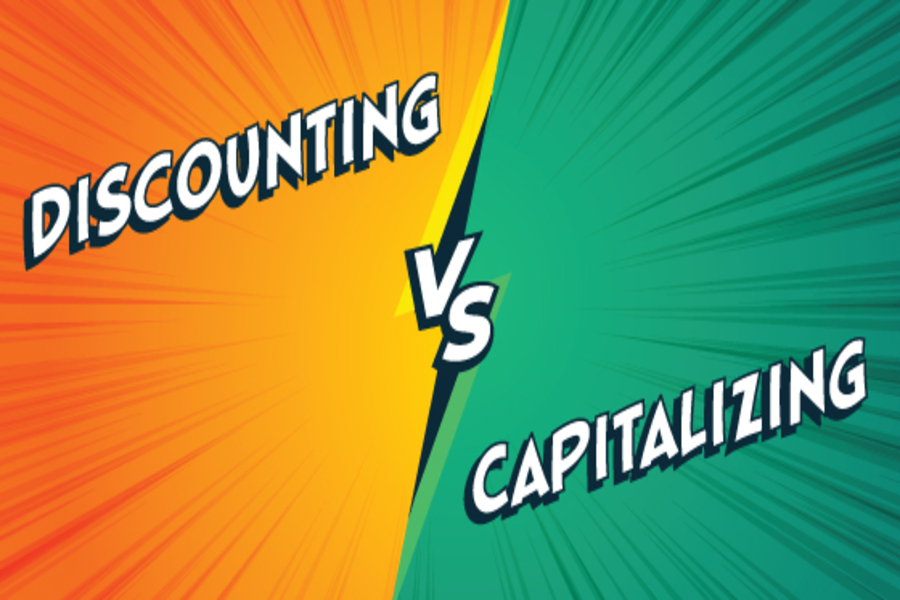In adversarial situations — such as divorces, contract breaches and shareholder disputes — you might need to hire an outside business valuator to evaluate complex financial matters. To get the most from these professionals, it’s important to understand the two key roles they can play in conflict resolution. Keeping these roles separate helps prevent valuators from being seen as “hired guns” by judges, juries, arbitrators and mediators. Expert witnesses Valuators often serve as expert witnesses in litigation. In this role, they may provide written opinions and verbal testimony on financial issues concerning: The value of a business, including the fair market value or fair value of a specific owner’s business interest, Economic damages, including temporary lost profits and diminution in business value, Formal rebuttal of...

Valuing a business requires more effort than just plugging numbers from the financial statements into a spreadsheet or artificial intelligence software program. A valuation professional needs a comprehensive understanding of business operations. Financial statements, tax returns and marketing materials tell only part of the story. Site visits can help bridge the gap, especially in adversarial situations. Touring the facilities During site visits, valuators tour the company’s facilities with the following questions in mind: Do the company’s operations appear efficient and organized? Do employees and managers seem competent and productive or disgruntled, overworked or adversarial? Are there any capacity constraints? What is the condition of the company’s property, plant and equipment (for example, any obsolete, unused, unrecorded or nonoperating assets)? For retail operations, does the company have adequate...
Mergers and acquisitions can be stressful for entrepreneurs who have invested blood, sweat and tears in their businesses — or second-generation owners who are selling their parents’ legacies. Setting the asking price and understanding the deal terms, including complex tax matters, can be overwhelming. Fortunately, a business valuation professional has the financial knowledge and real-world experience to help maximize the selling price and minimize the guesswork. Preparing for sale Valuators understand the relationship between risk and return as well as factors that affect value. So they’re equipped to assist in making companies more attractive acquisition candidates. Before a business goes on the market, a valuation pro can help address the following critical items: Financial statements. Audited financial statements offer prospective buyers greater assurance than reviews, compilations or internal...
The starting point for a business valuation is generally the subject company’s financial statements. Here’s an overview of how historical financial statements can serve as the basis for a valuation professional’s conclusion under the cost, income and market approaches. Cost (or asset-based) approach Because the balance sheet identifies a company’s assets and liabilities, it can be a reliable source of financial information, especially for companies that rely heavily on tangible assets (such as manufacturers and real estate holding companies). Under U.S. Generally Accepted Accounting Principles (GAAP), assets are recorded at the lower of cost or market value. So, adjustments may be needed to align an item’s book value with its fair market value. For example, receivables may need to be adjusted for bad debts. Inventory may include obsolete...
Benchmarking — or comparing a company’s financials to those of industry peers and its own historical performance — can provide insight into future cash flows and operating risks. Business valuation professionals use the following types of benchmarks to assess company-specific risk and, in turn, a subject company’s expected return. Profitability Profitability metrics evaluate how much money the subject company earns from each dollar in revenue. For-profit companies need to earn enough to cover fixed and variable costs, but some may accept a loss on certain products to gain market share or lure customers. Common profitability metrics include: Gross margin [(revenue - costs of sales) / revenue], and EBITDA margin (earnings before interest, taxes, depreciation and amortization / revenue). Profit margin (net income / revenue) may be less relevant when...
Business valuation experts will usually provide formal written reports that explain how they arrived at their conclusions. Asking seven questions can help you determine whether an expert’s report is comprehensive and on-point. (1) Did the expert properly define the engagement? Most valuation reports start with a detailed description of the assignment. Beyond the name of the subject company, the definition includes: The size of the interest (the ownership percentage of the number of shares or units), Effective date of the valuation, Intended uses of the report, The standard of value (for example, fair market value, fair value or strategic value), and The basis of value (minority vs. controlling basis and marketable vs. nonmarketable basis). If the expert applied discounts for lack of control or marketability, a substantial...
Fair market value is the appropriate standard of value in most business valuation assignments. But when valuing an asset for financial reporting purposes, fair value is generally used. Here’s an overview of what fair value is and how it differs from fair market value. Eyes on GAAP The terms “fair value” and “fair market value” are sometimes used interchangeably. To a business valuation professional, however, they have very different meanings. Under U.S. Generally Accepted Accounting Principles (GAAP), fair value is “the price that would be received to sell an asset or paid to transfer a liability in an orderly transaction between market participants at the measurement date.” This definition is found in Accounting Standards Codification (ASC) Topic 820, Fair Value Measurement. For example, fair value may be used when: ...
Revenue Ruling 59-60 is a landmark piece of IRS guidance that outlines the factors to consider when estimating the fair market value of a private business. Here’s an overview of those factors, along with other hidden details found in the ruling’s fine print. 8-factor approach Revenue Ruling 59-60 says that business valuation is an inexact science, often resulting in “wide differences of opinion” about the value of a particular business interest. Therefore, valuation professionals use a customized approach that considers the following eight factors: 1. The nature and history of the subject company, 2. The outlook for the general economy and industry, 3. Book value and financial condition (from at least two years of balance sheets), 4. Earnings capacity (from at least five years of income statements), 5. Dividend-paying capacity (as opposed...
Many startup ventures have never generated positive cash flow — or even revenue. How can a valuation analyst value a startup business when it has no track record? Without historical performance to rely on, valuators often turn to the entrepreneurs’ forecasts. However, no one can see into the future. So, prospective financial statements can be subjective and risky, especially in today’s volatile marketplace. Professional skepticism When evaluating prospective financials, valuators must exercise professional judgment and consider making adjustments where necessary. For example, whether or not an entrepreneur has put together formal financial projections can provide insight into the most important determinant of a startup company’s ability to succeed: management. Other important considerations include the startup’s competitive advantage, business type, market size, and potential growth opportunities. Lifecycle of a startup The...
Two techniques fall under the income approach umbrella when valuing a private business interest: the discounted cash flow (DCF) method and the capitalization of earnings method. How do these two commonly used methods compare — and which one is appropriate for a specific investment? Fundamentals of discounting The DCF method estimates the present value of future expected net cash flows using a discount rate. It entails these basic steps: Compute future cash flows. Potential investors are generally trying to determine what’s in it for them in terms of cash flow and an acceptable return on investment. Historical earnings are often the starting point for estimating expected cash flow over a discrete discounting period of, say, five or seven years. Then, the valuation expert calculates a terminal (or residual)...











